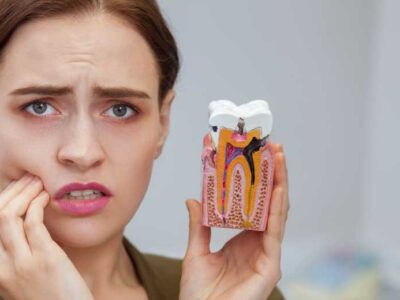Why Oral Wellness Matters at Every Age
Oral health plays a vital role in overall well-being, no matter the stage of life. For children, developing good dental habits early helps prevent cavities and sets the foundation for a lifetime of healthy smiles. Teens and young adults benefit from consistent care to protect against gum disease, orthodontic concerns, and lifestyle-related risks. As adults, oral wellness supports dental and overall health, with links to conditions like heart disease and diabetes. In later years, preserving strong teeth and gums is essential for maintaining nutrition, comfort, and quality of life.
Caring for oral health through every life stage ensures lasting benefits beyond your smile. From pediatric visits to preventive care in adulthood and specialized support in senior years, consistent attention makes a difference. To better understand how oral wellness impacts different phases of life and the best practices to follow, learn more about strategies that support dental health from childhood to healthy aging. Making oral care a priority helps prevent small issues from becoming bigger problems later. With the proper guidance, you can enjoy a healthy, confident smile at every age.
Oral Health in Childhood: Building Habits Early
Children who establish early brushing and flossing routines are more likely to carry these habits into adulthood. Dental experts recommend a first dental visit by age one to screen for cavities, demonstrate brushing techniques, and make dental visits less intimidating. These early checkups help spot signs of decay, encourage fluoride use, and offer parents peace of mind.
Childhood dental wellness is about more than twice-daily brushing. Limiting juice and candy, encouraging water, and teaching children how to clean all surfaces of the teeth create healthy, sustainable practices.
Teens and Tweens: Navigating New Challenges
As children become teens and tweens, new oral health challenges arise. Orthodontics, changes in diet, increased sports participation, and busy extracurricular schedules influence daily dental routines. This is also a time when kids may push back on routines or experiment with risky behaviors, such as vaping or getting oral piercings, which can negatively impact oral wellness.
- Braces and orthodontic appliances demand increased brushing and flossing to prevent plaque buildup and cavities.
- Wearing mouthguards during sports protects teeth from trauma and injury.
- Open conversations about the risks of tobacco and vaping are vital to prevent early gum and tooth issues.
Self-esteem and social pressures can drive interest in whitening products or cosmetic treatments, but teens should be educated on the safest, most effective ways to care for their smiles. Good oral health supports self-confidence and positive social experiences. Teaching teens to navigate these years with diligence pays lifelong dividends.
Adulthood and Oral Care: Maintaining Momentum
Oral hygiene often takes a backseat to work deadlines and family commitments for many adults. Yet, skipping dental visits or neglecting daily care increases the risk of developing gum disease, decay, and even systemic conditions such as heart disease and diabetes. Adults benefit from routine dental check-ups, cleanings, and periodic oral cancer screenings.
Gum health is especially important in adulthood. Unchecked gingivitis can progress to periodontitis, which not only threatens teeth but is linked to chronic diseases. Making small changes—like reducing sugary drinks, prioritizing flossing, and scheduling dental visits—can significantly lower oral and overall health risks.
Busy lifestyles may also include new risks: increased coffee or red wine consumption may stain teeth, while stress can lead to teeth grinding. Talking with a dentist about these concerns, including how medications may affect oral health, is crucial for ongoing wellness.
Senior Years and Healthy Aging
Aging brings additional oral health considerations. Many medications can cause dry mouth, heightening the risk of cavities and infections. Manual dexterity challenges, such as arthritis, can make brushing and flossing more difficult, while decades of wear may cause teeth to become sensitive.
Tooth loss is not inevitable; seniors who commit to regular brushing, flossing, and dental visits can often maintain healthy, natural teeth or well-fitting dental appliances. A healthy mouth supports better nutrition, effective speech, and overall comfort, and makes social interactions more enjoyable.
Routine dental care in the senior years is especially important for detecting oral cancers, managing dentures, and addressing root surface decay. Family members or caregivers can play an important role in supporting older adults with daily hygiene routines and transportation for dental appointments.
Tips for All Generations
- Brush teeth twice daily using a fluoride toothpaste.
- Floss each day to remove plaque and debris between teeth and along the gumline.
- Schedule preventive dental checkups at least once a year.
- Eat a balanced diet focused on fruits, vegetables, and lean proteins.
- Avoid all forms of tobacco and limit alcohol consumption.
- Communicate with your dental provider about medications or health conditions.
Oral wellness is more effective and fun when treated as a family affair. Start small with easy changes like switching soda for water, challenging family members to brush for two minutes, or creating a sticker chart for daily brushing habits. Simple steps help every generation build and maintain lifelong health.
Frequently Asked Questions About Lifelong Oral Health
- Do baby teeth matter? Absolutely. Cavities in baby teeth can cause pain, infections, and misalignment of permanent teeth.
- When is the best age for braces? Typically, between ages 9 and 14, but every child is different. An orthodontic consultation around age 7 can provide guidance.
- Are electric toothbrushes better? Studies show electric toothbrushes can remove more plaque and are especially helpful for people with limited dexterity.
- Why does oral health affect overall health? Poor oral health increases the risk for heart disease, infections, and complications from diabetes.
- Should seniors keep seeing a dentist? Yes. Routine visits help catch problems like oral cancer and root decay and manage issues caused by dry mouth or dentures.
Conclusion
Oral wellness is a lifelong journey, impacting not just the mouth but overall health, confidence, and quality of life. Building strong habits in childhood, adapting routines in adolescence, maintaining care through adulthood, and addressing the unique needs of seniors ensure a healthy smile at every stage. Making oral health a priority means investing in a better, brighter future for yourself and your loved ones.
As part of this lifelong journey, seeking professional care for specific needs, such as tooth replacement, is essential. When you are ready to find an expert for restorative work, you can begin your search by using terms like a term like dental implants Avon Lake OH or dentist near me to find a qualified professional in your local area.

















